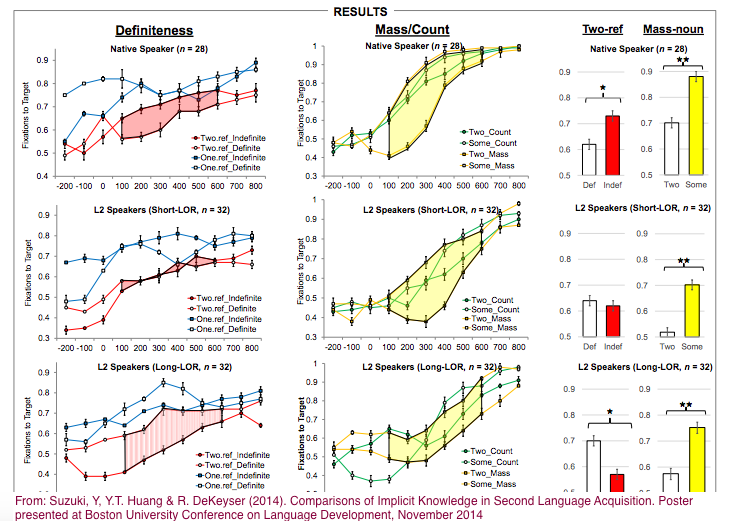Research rotations: Choose your own (and your advisor's) adventure
December 01, 2014
Maryland Language Science Center

In the biological sciences, lab rotations are a common form of "speed dating" for beginning students and potential mentors. In Maryland’s interdisciplinary Language Science Graduate program, research rotations play a different but very important role. Students work closely on a project with a faculty mentor outside of their home department, giving them the opportunity to gain more diverse experience and skills, learn about different tools and approaches, and connect their research to broader applications. And the aim is for these rotations to lead to concrete research results and publications. Like other elements of our interdisciplinary training programs, research rotations were initially planned for their benefits to students but have turned out to have many additional benefits to the language science community, strengthening connections between researchers and departments and building an interdisciplinary perspective on language science. Here are just a few recent successful projects and publications which have arisen from research rotations: Yuichi Suzuki Yuichi presented work at the recent Boston University Conference on Language Development which was influenced by multiple language science mentors. Yuichi has been using eye-tracking to demonstrate that second language learners have an advantage in learning structures in L2 which have a parallel in their L1. Yuichi’s research benefited greatly from the eye-tracking expertise of YiTing Huang (his research rotation mentor) in addition to his advisor Robert DeKeyser ; and the idea for the study was initially inspired by a recent seminar co-taught by Bob Slevc (PSYC) and Jared Novick (HESP and CASL). Chuchu Li Chuchu recently published an article in Memory and Cognition, co-authored with her advisor Min Wang and with Bill Idsardi (LING). Chuchu’s research addresses the connection between writing systems and spoken language perception and production. You can read more about her research here Katie Leech (HDQM) Also at BUCLD, student Katie Leech along with Yi Ting Huang (HESP) and Meredith Rowe (formerly HDQM, now at Harvard) presented research on how socioeconomic differences are related to children’s syntactic development . The team used eyetracking and an act-out task to investigate how SES (which aligns with differences in input frequency of passive constructions) correlates with children’s processing of passive constructions. Lower SES children were slower to distinguish active and passive sentences, and in particular had more difficulty revising an initial misinterpretation of a passive. Naho Orita (LING) Naho’s research rotation with mentor Jordan Boyd-Graber (formerly iSchool, now at Colorado) led to a paper at the Association for Computational Linguistics this summer co-authored by Naomi Feldman (LING) and Eliana Vornov (PULSAR undergraduate) as well as Jordan. The research used topic modeling to capture the relationship between salience of a referent with the choice of referring expressions (pronoun vs lexical noun). More recently, the computational linguistics experience she gained through her rotation was key in securing her a job offer in a prestigious computational linguistics lab (details still under wraps!).



